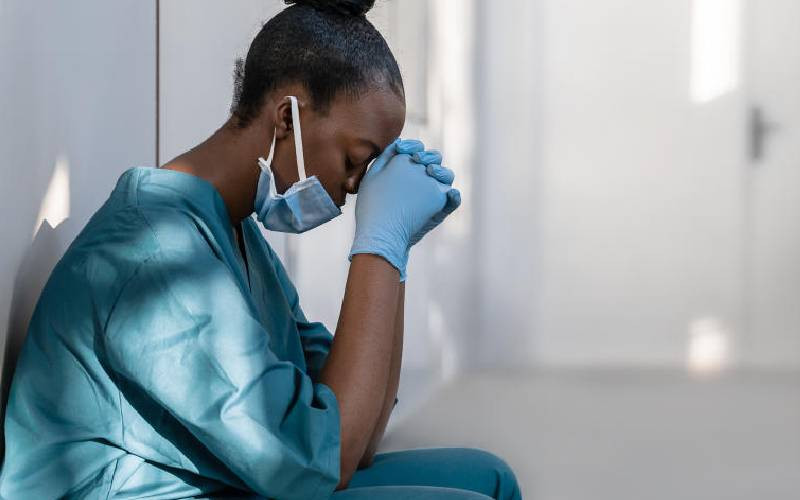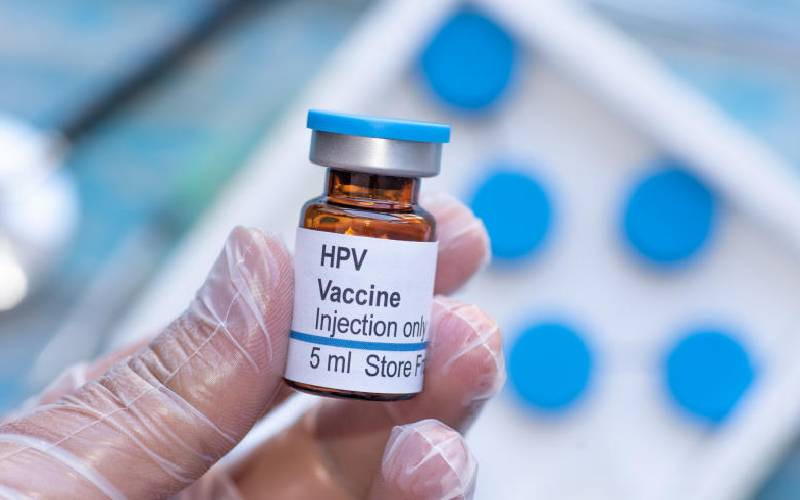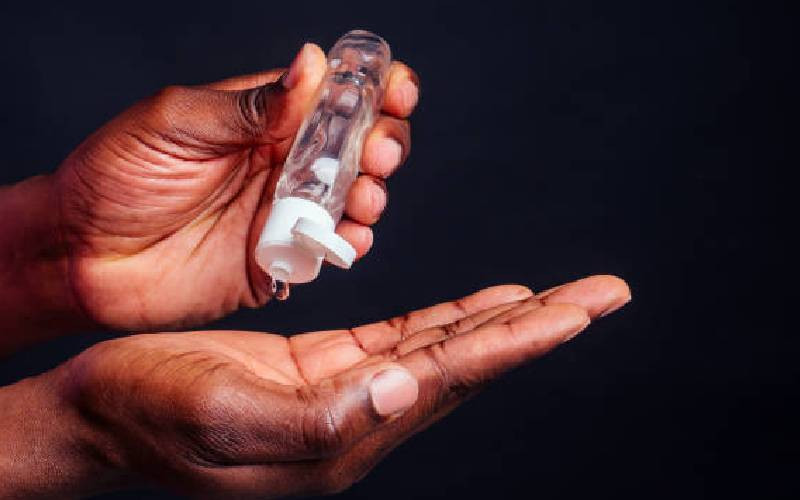
A study conducted by the Aga Khan University (AKU) between January 2021 and June 2022 revealed that two in every five healthcare workers show symptoms of post-traumatic stress disorder.
According to the study, some of the triggers among healthcare practitioners are heavy workload, lack of resources and a poor working environment.
Not knowing how to deal with such issues, some doctors have found themselves struggling with alcoholism as well as getting high on anaesthesia and drug combinations.
Dr Bridget Osebe, a medical officer in oncology, said working as a medic can be tough on any human being and in her case, working with terminally ill patients is a reminder that things can go wrong at any time. She says she bonds with her patients and enjoys a cordial relationship with them.
"Due to the bond we form, patients open up to me and when you see them repeatedly, they become a part of their life and they become a part of yours. They become vulnerable with you. You get to talk about things beyond their illness," she said.
However, she loses her patients from time to time and this, she says, can take a toll on her. "I started working in oncology in 2019 and I had some elements of semi-depressive symptoms but I was lucky that I had mentorship and people that I could talk to because they helped me learn how to cope."
The medical officer said depression is rampant in the field and calls for the government's intervention in putting in place structures for debriefing.
Dr Dennis Miskellah, an obstetrician-gyneacologist at the Kenyatta National Hospital said doctors in Kenya have to show up to work daily and save lives despite any challenges they might be going through.
- Nakhumicha calls for review of doctors CBA as strike bites
- Clinical officers begin strike as crisis in health sector worsens
- Clinical officers are first point of call for patients
- Ruto remains mute as healthcare crisis worsens
Keep Reading
Currently, he said, most doctors in Kenya work long hours due to a shortage of medical practitioners, experience delayed pay and fail to get their annual leave days.
"You want someone to come to work yet they have not been paid for months, they don't know what their children will eat or how they will pay rent," said Miskellah.
"When you lose a patient, you have others to take care of, that means, there is no time to mourn. You continue seeing the others. You are like a robot."
Dr Aggrey Orwenyo, a pharmacovigilance specialist in Kisii said one of the most traumatising things for healthcare workers is losing a patient. He says it's worse if the death could have been prevented.
"We are human beings and so the feeling of loss of a patient affects us. It affects us more because sometimes we know the death could have been avoided especially when a hospital is lacking certain equipment," said Orwenyo.
Orwenyo's wish is that the government could set up a wellness centre for healthcare givers alone in every county.
Davji Atella, the secretary general of Kenya Medical Practitioners, Pharmacists and Dentists Union (KMPDU) said preventable suffering and death of many patients due to the negligence of the government are some of the causes of mental illness among medics.
"When a doctor loses a patient in such scenarios they lose a part of themselves too, we need to equip our hospitals," Atella said, and added that burnout and moral injury are some of the leading causes of mental illness and suicide among healthcare workers.
"Inability to get a safe place to debrief without stigma has made thousands suffer in silence while others have resorted to alcohol and drug abuse," Atella said and added that doctors need a safe place to seek mental health services without fear of stigmatisation.
Asked why some doctors run private hospitals at the expense of putting in the hours in public hospitals, Atella said: "With the current unemployment status of doctors despite existing shortages in the hospital, it is limited to find doctors working in both public and private facilities, those that work in government are doing long shifts up to 120 hours a week marred with denial of annual leave."
Healthcare workers have been attending webinars and seminars organised from within the practice to learn how they can take care of their wellness.
In a mental health awareness forum held on December 12, 2022, titled 'Burnout Among Healthcare Workers', Dr Edith Kwobah, a consultant psychiatrist, said healthcare workers should work together to ensure workplaces have policies on mental health. Kwobar, who is also the head of mental health at Moi Teaching and Referral Hospital in Eldoret, encouraged healthcare practitioners to have social support systems that would help in time of need.
She emphasised the need to keep family members close and to try and spend as much time as they could with them.
"Doctors are respectable in the society but it is important to note that even soldiers need a quiet place to rest," Kwobah said.
Health Cabinet Secretary Susan Nakhumicha said the government has created a State Department of Standards for the management of health professionals.
Nakhumicha said she will work with Health Principal secretaries to ensure the welfare of healthcare workers across the country.
"The department will work with different healthcare union medics. We want to see how we can help with their welfare including their mental health," Nakhumicha said.
The CS said she is passionate about mental health wellness and encouraged the medics to use the Kenya Red Cross hotline number (1199) to get psycho-social support in case of a problem.
"Healthcare workers are just like any other members of society and they also have underlying issues that affect them. The worst news a doctor can get is when they lose a patient. Sometimes I wonder when the relatives blame the doctors for the loss. Doctors just want the best outcome for their patients," said Nakhumicha.
Additionally, she said she will restructure how Mathare National Teaching and Referral Hospital works and take away the stigmatisation that is associated with seeking mental help.
"Stigmatisation of mental health aggravates the issue and I want to restructure how Mathare Hospital works so that we take away the stigmatisation. We need to beef up human resources for health that work there so that it is able to take a holistic approach in matters of mental illness," she said.
The CS also said that the government is working to ensure that primary healthcare is achieved. This, she said, will ensure low mortality rates in county hospitals.
"We are in discussion with the county governments to ensure that the levels 1, 2, 3, 4 and 5 hospitals are well equipped to take care of patients," she said.
 The Standard Group Plc is a multi-media organization with investments in media platforms spanning newspaper print
operations, television, radio broadcasting, digital and online services. The Standard Group is recognized as a
leading multi-media house in Kenya with a key influence in matters of national and international interest.
The Standard Group Plc is a multi-media organization with investments in media platforms spanning newspaper print
operations, television, radio broadcasting, digital and online services. The Standard Group is recognized as a
leading multi-media house in Kenya with a key influence in matters of national and international interest.











